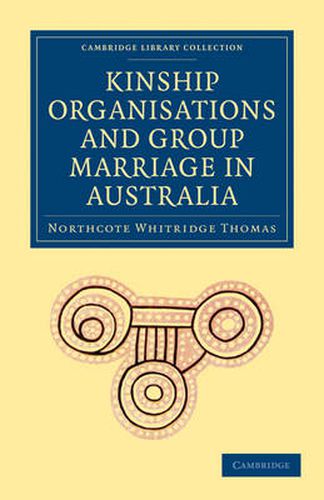Readings Newsletter
Become a Readings Member to make your shopping experience even easier.
Sign in or sign up for free!
You’re not far away from qualifying for FREE standard shipping within Australia
You’ve qualified for FREE standard shipping within Australia
The cart is loading…






N. W. Thomas (1868-1936) was one of the first government anthropologists of the colonial era and published one of the first studies of central African languages. This book, written in the early stages of his career, is a study of kinship structures in indigenous Australian peoples, and was first published as part of the Cambridge Archaeological and Ethnological Series in 1906. Thomas develops and defines fundamental anthropological concepts used today - such as consanguinity as a distinct term affecting descent, status and duties in a society - and emphasises the importance of seeing kinship terms as a social description, instead of merely describing biological relationships. His deconstruction of Lewis H. Morgan’s theory of social evolution is also of interest for constructing a historiography of social anthropology. This volume contains views on ethnicity which were acceptable at the time it was first published.
$9.00 standard shipping within Australia
FREE standard shipping within Australia for orders over $100.00
Express & International shipping calculated at checkout
Stock availability can be subject to change without notice. We recommend calling the shop or contacting our online team to check availability of low stock items. Please see our Shopping Online page for more details.
N. W. Thomas (1868-1936) was one of the first government anthropologists of the colonial era and published one of the first studies of central African languages. This book, written in the early stages of his career, is a study of kinship structures in indigenous Australian peoples, and was first published as part of the Cambridge Archaeological and Ethnological Series in 1906. Thomas develops and defines fundamental anthropological concepts used today - such as consanguinity as a distinct term affecting descent, status and duties in a society - and emphasises the importance of seeing kinship terms as a social description, instead of merely describing biological relationships. His deconstruction of Lewis H. Morgan’s theory of social evolution is also of interest for constructing a historiography of social anthropology. This volume contains views on ethnicity which were acceptable at the time it was first published.